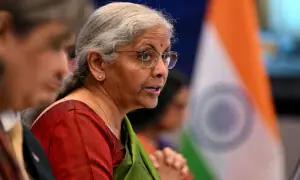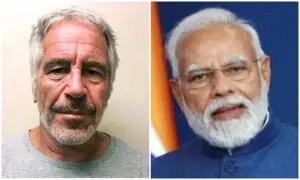SC stops short of giving election date, allows ECP to “deviate” from deadline
4 min readThe PTI has welcomed the Supreme Court ruling ordering elections for Punjab and KP assemblies within 90 days. However, it has still not set a date and PTI celebrations may be short-lived.
In fact, the top court has even allowed the Election Commission of Pakistan to “deviate” from the 90-day deadline set in its order.
And two dissenting judges have inserted a footnote to the judgment dealing a blow to the order passed by three judges.
The five-member bench, in a split 3-2 ruling, has merely defined a threshold beyond which the government cannot delay the election. The 90-day period from the dissolution of the Punjab Assembly—which was dissolved on January 14—ends on April 14.
For the KP assembly, you can add a few more days, counting from January 18. Hence, the PTI may find some solace in this part of the judgment.
But the SC order has been carefully worded.
In its order, the top court has instructed the Election Commission to recommend an election date to the president, who will announce the date in consultation with the ECP.
April 11 is not the election date

This means that the April 11 date announced earlier by the president does not apply automatically. President Arif Alvi needs to consult the ECP.
The court order declared President Alvi’s order dated February 20, 2023, for the Punjab election date as “constitutionally competent” but also said that it was “ subject to what is observed below.“
The order was declared “constitutionally invalid insofar as it applies to the KPK Assembly and is therefore hereby setaside.”
The court said that the ECP has been “directed to use its utmost efforts to immediately propose, keeping in mind [Sections] 57 and 58 of the 2017 Act, a date to the President that is compliant with the aforesaid deadline.”
“If such a course is not available, then the Election Commission shall in like manner propose a date for the holding of the poll that deviates to the barest minimum from the aforesaid deadline,” the 13-page short order read. “After consultation with the Election Commission the President shall announce a date for the holding of the general election to the Punjab Assembly.”
In other words, the court said that the election should be held within 90 days to the maximum possible extent.
Significance of the Election Act 2017
It said the election date should be announced in view of Sections 57 and 58 of the Election Act.
Section 57 says that the president shall announce an election date in consultation with the ECP and provides for the intervening period between each electoral step. Section 58 is about “Alteration in Election Programme” and allows the ECP to change the election schedule after informing the president.
Hence, the mention of Section 58 is significant.
Dissenting note from two judges
Justice Syed Mansoor Ali Shah and Justice Jamal Khan Mandokhail wrote a single dissenting note. They did not agree with the other three judges, namely Chief Justice Umar Ata Bandial, Justice Munib Akhtar, and Justice Mohammad Ali Mazhar.
The two dissenting judges said that the supreme court should not have heard the case in the first place, because the same matter was being heard in the Lahore High Court and Peshawar High Court.
The judges said that “the suo motu proceedings (SMC No. 1 of 2023), in the facts and circumstances of the case, are wholly unjustified in the mode and manner they were taken up under Article 184(3) of the Constitution.”
They also said that the proceedings were initiated in “haste”.
The honourable judge debated why the issue which was already being heard by the high courts should not be taken up by the Supreme Court and then added: “Even otherwise without prejudice to the above, such like matters should best be resolved by the Parliament.”
Most importantly, the two judges in their dissenting note also referred to the position taken by Justice Yahya Afridi and Justice Athar Minallah who were part of the original nine-member bench but who recused themselves.
Justice Shah and Justice Mandokhail said the two judges had dismissed the petition.
A footnote in their dissenting note read as follows:
Initially a nine member bench heard this matter. The aforementioned two Hon’ble Judges [Justice Yahya Afridi and Justice Athar Minallah] decided the matter by dismissing the said petitions. Later on two other Hon’ble Judges disassociated themselves from the Bench for personal reasons and as the two aforementioned judges had dismissed the matter, the Bench was reconstituted into a five-member bench vide order dated 27.02.2023. The decisions of the aforementioned two Hon’ble Judges dated 23.2.2023 form part of the record of this case.
The government later used the same note to reject the Supreme Court judgement.
First published at 12:47 PM on March 1, 2023
For the latest news, follow us on Twitter @Aaj_Urdu. We are also on Facebook, Instagram and YouTube.























Comments are closed on this story.